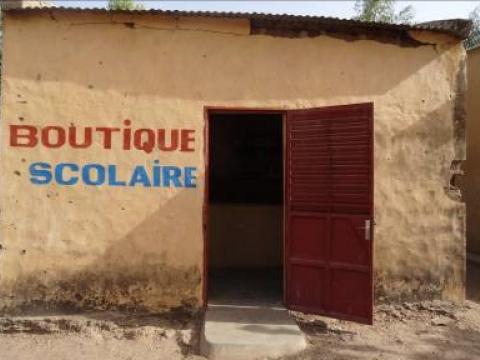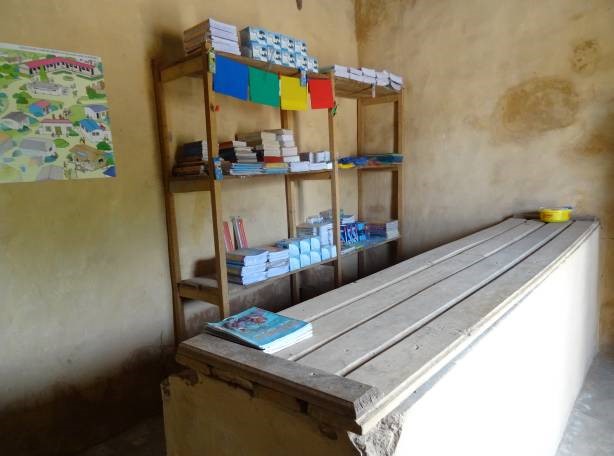SCHOOL SHOPS

Setting up school shops is one of the sustainable improvements that World Vision is trying to make to the quality of education. In the programme running at Diokoul in Senegal, six school shops have already been put in place in the space of a few years. Efforts will continue in 2016, with teams planning to refurbish the shop at Nguer which had suffered damage after a severe flood, as well as opening two new shops in Diokoul and Kathial. The school shops are an attempt to alleviate the twin hindrances of distance and isolation that rural communities have to contend with. Trying to make access to education fair for children living in remote areas (for example by building schools) is all well and good, but it is just as important for the children to find optimal learning conditions when they arrive there. This is why investing in facilities on-site also has a vital contribution to make to a favourable learning environment.
World Vision's role therefore is to work with the community to get school shops up and running. In the first instance, the organisation will provide materials through the support of sponsors (particularly through the gifts catalogue). World Vision is also sustaining the management committee and the teaching staff who are in charge of the shop. These community actors are directly responsible for its smooth running from day to day, and they also ensure that the parents of pupils are made aware of the operational practicalities and benefits of the shop. World Vision believes in empowering local people and encourages the management committee and teaching staff to take full responsibility for their roles. World Vision staff are always contactable to work with them and make sure that the monthly tracking happens (stock management and adherence to buying procedures for example).
Thanks to the school shops, the children can buy supplies that are specific to both their needs and to the requirements of the National Education Programme of Senegal, and all from an outlet on the school premises. For example, at Dioly Elementary School in the Diokoul Programme, the pupils can replace pens, exercise books, rulers etc. Supplies are available from the beginning of term and regularly restocked. As a result, all the pupils are kitted out from September and ready to get their teeth into the school year. The schoolteacher at Dioly has signalled his great satisfaction at this, because nowadays the curriculum is not getting held up because the children are having to go for weeks without materials.
Equip the students before the beginning of classes
What's more, materials come direct from the supplier, which cuts out the middleman and keeps prices low, in fact often lower than advertised in shops in town or in large outlying villages. Profit margins do not come into it because the mission of these school shops is to serve everyone's interests and ensure equality between pupils. Given that a trip to town is no longer necessary to find materials at attractive prices, parents are able to give their children a better head-start. Furthermore, parents even have the option of obtaining school materials on credit, whereby the children are guaranteed to be equipped for the start of term and the parents can settle up just as soon as harvest income has reached them.
Such is the positive impact of these shops that children from outlying villages also come in to buy supplies. In putting these facilities in place, World Vision is greatly helping the well-being of many children, way beyond initial expectations.
The interior of the Diolly shop, where you can see provision of chalks blankets notebooks, pens, etc.

